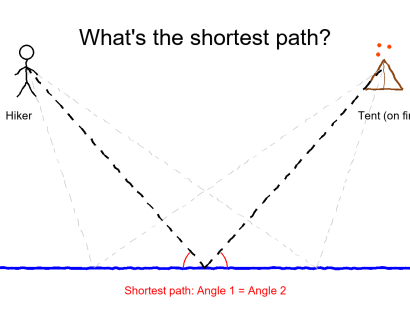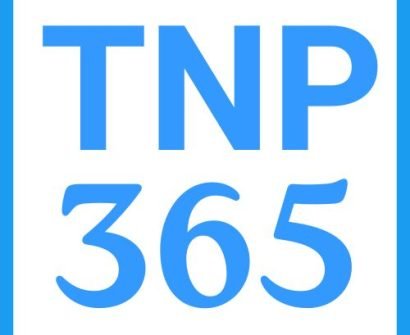Currently Empty: ₹0.00
Online or Residential? Finding the Right Summer Program for Your Gifted Child
Deciding on a summer enrichment program for your gifted child can feel like a big decision—and it is. You want something that lights up their curiosity, stretches their thinking, and connects them with other bright, like-minded learners. The good news? There are excellent options available, both online and residential. This guide is here to help you explore what might work best for your child and family, drawing on our partners’ years of experience running both residential and online enrichment programs.
Quick Pointers: Online or Residential?
Short on time? Here are a few key things to consider right away. If you want the details, read the rest of the blog.
Your Child’s Age and Readiness: Younger children (around ages 9–11), or those who aren’t quite ready to be away from home, might thrive in a well-designed online program. Older, more independent teens might be excited for a residential experience.
Learning Style and Social Preferences: Does your child come alive in all-day group settings, or do they prefer short, focused learning with space for reflection and one-on-one interactions?
Program Content and Format: Residential programs may offer access to advanced labs or specialized facilities, especially for hands-on STEM topics. Online programs, on the other hand, often shine in bringing together global mentors and offering flexibility.
Logistics and Budget: Residential programs can mean higher costs and more planning. Online programs are typically easier to access and more manageable within a family’s routine.
The Big Picture: What Sparks Your Child’s Joy?
Every summer brings a fresh opportunity to inspire your gifted child’s love of learning. If you’re the parent of a gifted learner, you already know how much more they often need than what traditional school settings provide. Maybe your child asks endless questions, dives into unusual interests, or feels out of sync with peers at school. These are common experiences—well documented in research—and summer enrichment can be a powerful way to meet those needs.
The goal of a good program isn’t just to keep them occupied. It’s to offer that spark that energizes their thinking and helps their talents grow.
Why Enrichment Matters Most Between Ages 10 and 14
Many experts point to ages 10 to 14 as a particularly crucial window in talent development. This doesn’t mean giftedness fades if not addressed—but it’s a prime time for growth.
Think of this phase as a launchpad. With the right support and challenges, students can build momentum, discover new passions, and strengthen the all-important skill of learning how to learn. The programs they experience now can shape how they see themselves as learners and thinkers in the years to come.
Residential Programs: Deep Dives and Independence
Residential summer programs have a long tradition—and for good reason. They offer immersive, community-based experiences that many gifted children find deeply fulfilling.
What they offer:
Immersive Learning: Living and learning a subject for a few weeks can create intense engagement and lasting understanding.
Independence and Social Growth: Being away from home teaches time management, self-reliance, and how to build relationships in a new environment.
Specialized Resources: Some subjects, especially in science and engineering, benefit from access to advanced labs and physical tools often available only in on-site settings.
Community of Intellectual Peers: Spending time with other curious, driven students can be both comforting and energizing. Many gifted children finally feel seen and understood in these spaces.
For many students, residential programs become a treasured memory and a meaningful turning point in their journey.
The Rise of Quality Online Programs: Flexible, Focused, and Deep
Today’s online enrichment programs are not the same as the passive video-based courses of the past. The best online offerings are thoughtfully designed to challenge and engage bright young minds—and they’re gaining recognition around the world.
What they offer:
Wider Access: Online programs remove geographical and financial barriers. A student in Dubai can work on a project with a peer in Delhi and learn from a mentor based in London.
Screen Time, Reimagined: Families are right to be thoughtful about screen time. That’s why well-designed programs (like ours) offer short, high-impact sessions—often just two hours every other day—leaving space for rest, play, and family life.
Global Mentors: Online programs make it possible for students to learn from extraordinary mentors regardless of location. At Gifted World, for example, our online and residential programs are taught by the same experienced educators.
Creative, Hands-On Projects: Even without large equipment, students can build and experiment in meaningful ways—using household materials, digital tools, coding platforms, or collaborative challenges.
Essential Skills for the Future: Online learning fosters digital fluency, self-direction, and virtual collaboration—all skills that will matter in school, careers, and beyond.
Real Interaction, Not MOOCs: These are not massive open courses like Udemy or Coursera. The best online gifted programs center on rich learning tasks, live discussion, and peer collaboration. Students are expected to think critically, solve problems, and dive deep.
Peer Connections That Stick: Contrary to the myth that online learning is isolating, many students build strong bonds through thoughtful discussion, shared projects, and common interests.
So Which One is Right for You?
There’s no one-size-fits-all answer. What matters most is what works for your child right now, and what fits your family’s needs.
Here are a few helpful questions to consider:
Is my child excited by the idea of staying away from home, or would they feel more at ease learning from familiar surroundings?
Are there specific topics or formats that would best match their passions and needs?
Would hands-on learning be limited online for this particular subject, or could it actually work just as well?
What kind of peer interaction is most energizing for them—intense and continuous, or spaced out but deep?
How important is access to a great mentor? (Hint: it’s important in both settings.)
A Final Thought: Don’t Miss the Moment
That 10–14 age window is special. It’s a time when minds are open, curiosity is high, and confidence is still forming. The right kind of enrichment at this stage can have a lasting impact on how your child thinks, learns, and dreams.
If you’re reading this, you’re already doing the most important thing—paying attention to what your child needs. Explore your options, talk to your child, and choose what feels right.
At Gifted World, our Gifted Summer Program Online in July is designed especially for students in international schools in India and in the UAE. It brings together fascinating topics, global peers, and expert mentors in a way that fits well with family life.
If an accessible, enriching, and high-quality online experience sounds like the right next step for your child, we’d love for you to learn more: giftedworld.org/summer-program
No matter what you choose, here’s wishing you and your child a summer full of discovery and joy.


